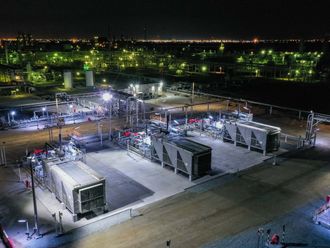London: Only one per cent of insurers globally are assessing the risk of being left with investments in “stranded assets” — oil and gas reserves held by companies which may prove unviable as the world moves to a low-carbon economy, a study showed on Thursday.
Bank of England governor Mark Carney used the term in a speech last September in which he called on companies to be more open about their climate change exposure to avoid abrupt changes in asset prices that could destabilise markets.
The insurers lag behind pension funds, 6 per cent of whom are assessing the risks, according to the study by the Asset Owners Disclosure Project (AODP), a not-for-profit organisation.
With heavy competition in the sector, insurers have increasingly been relying on investment income, rather than underwriting, to boost profits.
“Insurers are specialists in risk management, but while they may understand the implications of climate change in their underwriting, they are failing to join the dots on the investment side,” Julian Poulter, CEO of AODP, said in a statement.
“It is extraordinary that the left hand doesn’t seem to know what the right hand is doing.” Only 12 per cent of insurers are taking “tangible” action more broadly to cut climate change risk in their portfolios, compared with 23 per cent of pension funds, the study showed.
The group analysed 116 insurers with $15.3 trillion under management and 324 pension funds with $15.9 trillion.












